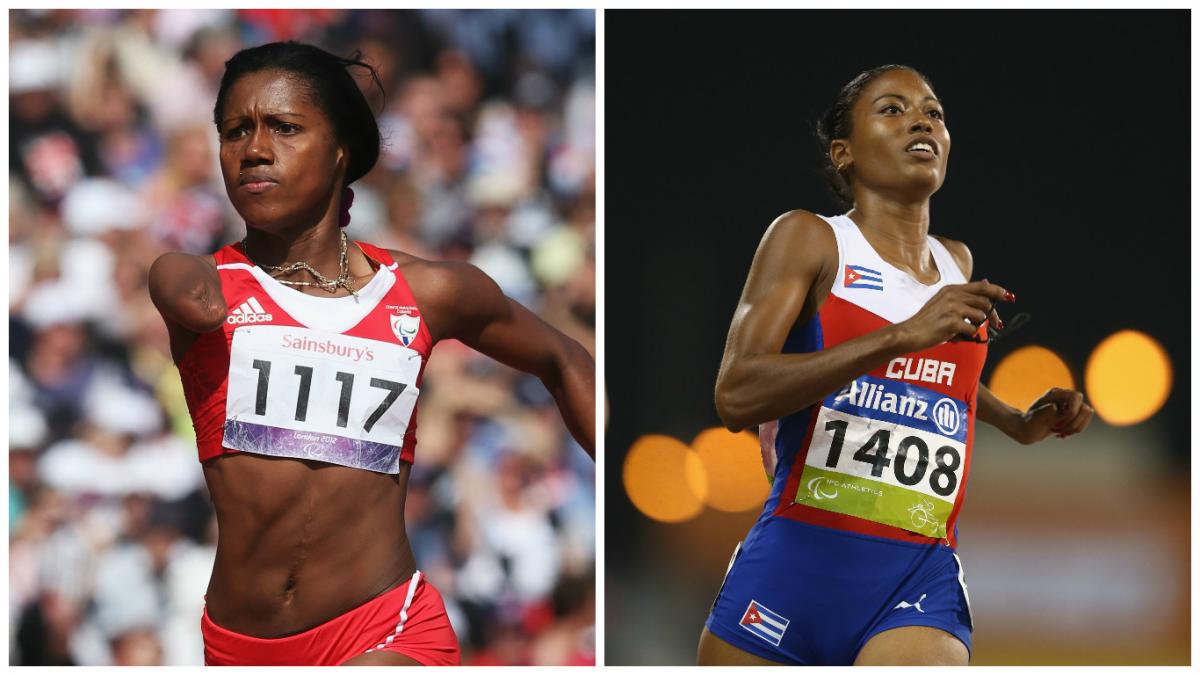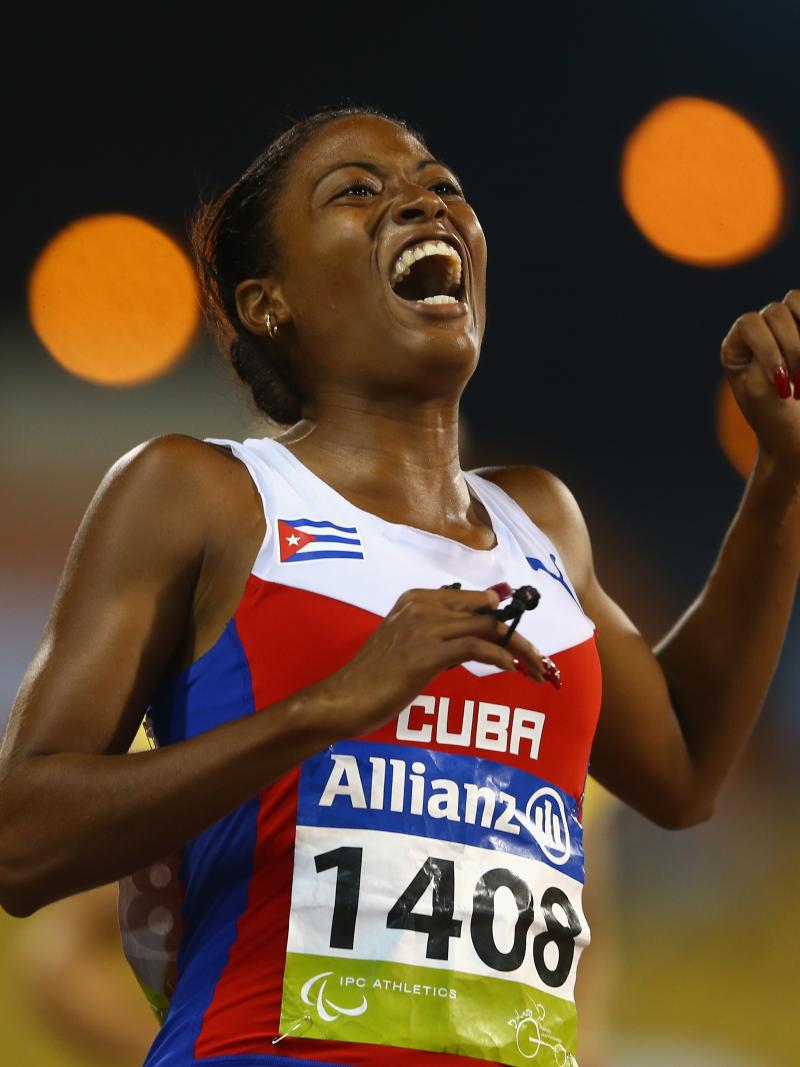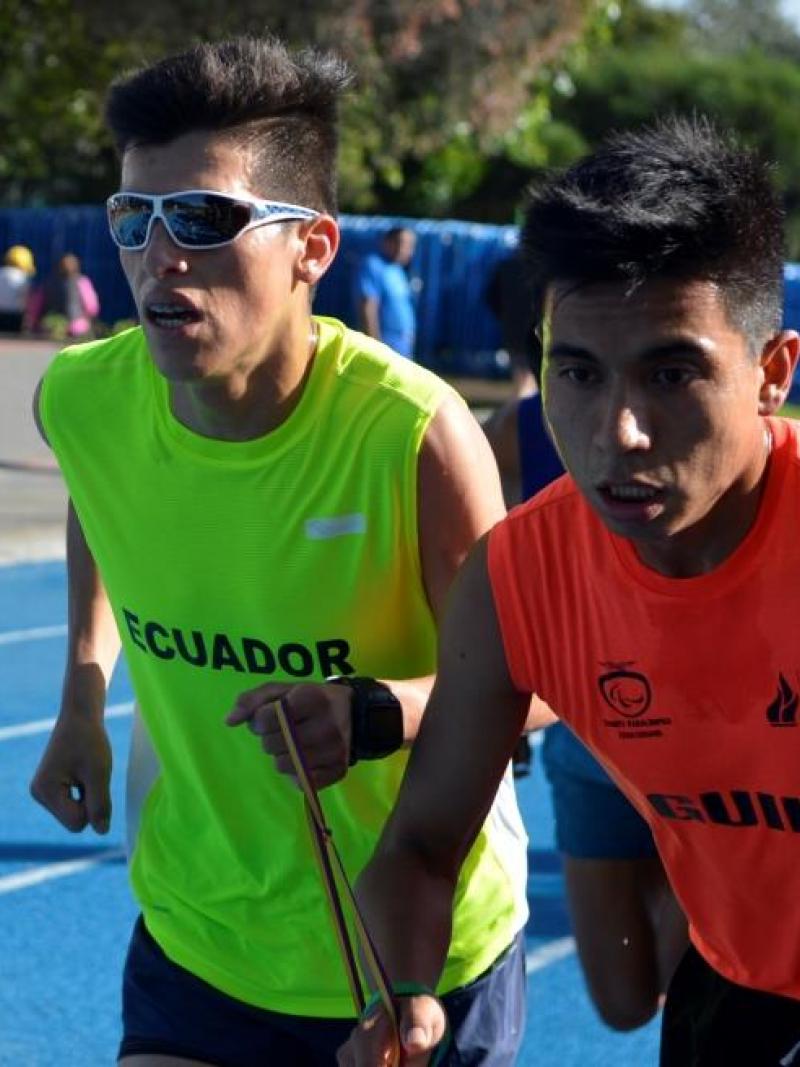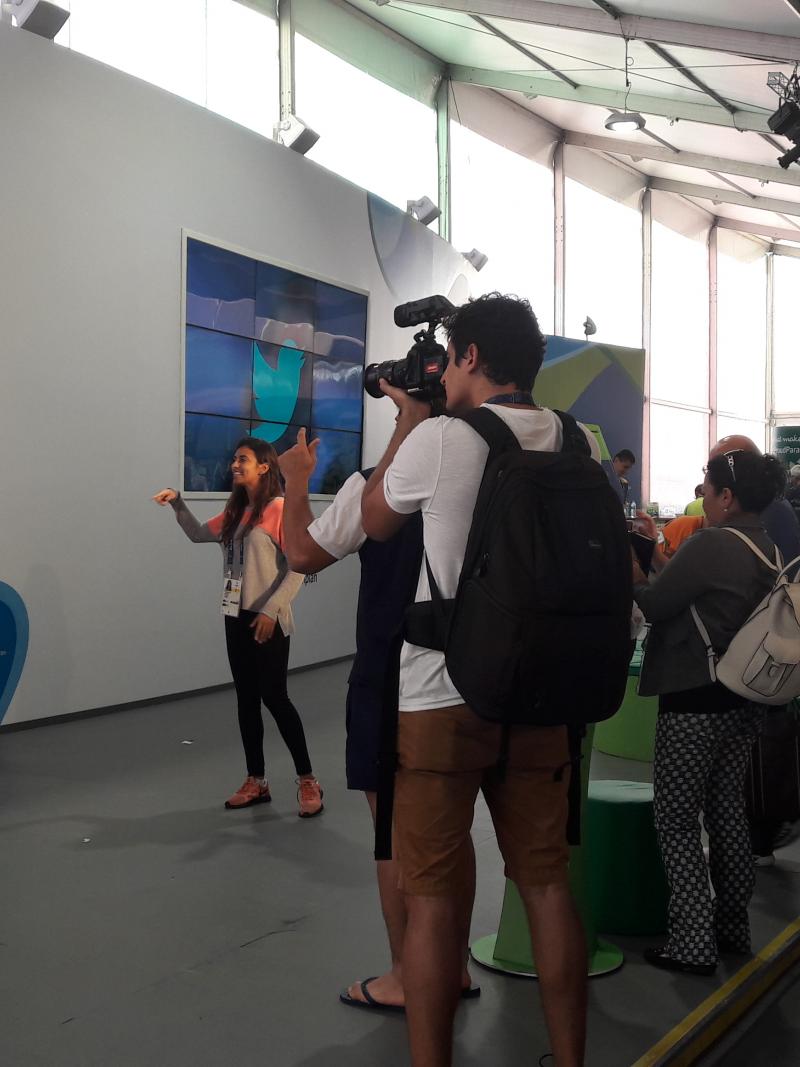Agitos Foundation looks ahead to ground-breaking Paralympics
With the release of the final road to Rio 2016 athlete stories, the IPC’s development arm is confident Rio 2016 will be a landmark Paralympics for Para sport development. 07 Sep 2016
Cuba’s Yunidis Castillo and Omara Durand
The development arm of the International Paralympic Committee (IPC), the Agitos Foundation, is looking forward to what it expects to be a landmark Paralympic Games for Para sport development at Rio 2016.
Established four years ago at the London 2012 Paralympic Games to strengthen Para sport worldwide, the Agitos Foundation has helped IPC members to involve thousands of people with impairments in sport, as well as athletes and coaches, to improve their training.
Five athletes who have benefitted from this work will compete at Rio 2016 and have been featured in a video series that shows the often difficult circumstances they live and train in.
Cuba’s Paralympic track medallists Omara Durand and Yunidis Castillo, Ecuador’s long distance runner Darwin Castro, Mexican field athlete Eliezer Gabriel and Brazil’s swimmer Cecilia De Araujo will all go for medals at Latin America’s first Paralympic Games from 7 September.
A further three youngsters are now amongst their countries’ brightest medal hopes for Tokyo 2020; Colombian swimmer Maria Paula Barrera and javelin thrower Luis Herazo, and Brazilian sprinter Washington do Nascimento.
Films about their family life, background and training have been published in the lead-up to Rio 2016, and are available at here.
All eight athletes, along with some of their coaches took part in training workshops run in partnership with the organisers of the Toronto 2015 Parapan American Games and Rio 2016 in the last two years.
“The videos show how the lives of individuals can be changed through Para sport in challenging circumstances, such as vulnerable areas affected by conflict, as well as illustrate how athletes are role models for other people with an impairment,” said Georg Schlachtenberger, Director of the Agitos Foundation.
“Darwin and Luis are particularly good examples of the impact we are proud to have been able to make in a short period of time. Darwin is the first Ecuadorian athlete in history to directly qualify for a Paralympic Games, whilst Luis has completely changed attitudes towards people with an impairment by setting national javelin records in Colombia.
“At Rio 2016 there will be around 40 athletes, plus their coaches and support staff, who participated in training workshops as a result of partnerships with Games Organising Committees. That is in addition to the immeasurable number of athletes who have been helped through some of our other projects.
“We are proud to include these people in #TeamAgitos.”
Another Agitos Foundation success story is the Grant Support Programme. Having invested more than EUR 2.5 million into Para sport development and raising awareness around the world since 2013, the GSP has supported 126 projects from National Paralympic Committees, International Federations, International Organisations of Sport for the Disabled and Regional Organisations. These include funding for a programme to involve refugees in Para sport in Greece, Cyprus and Serbia as well as helping people affected by natural disasters such as earthquakes in Haiti and Ecuador.
The Organisational Capacity Programme, which provides training on governance structures, marketing and branding and athlete development, has also involved nearly 1,000 participants from 39 National Paralympic Committees since 2014.
Of the 4,342 of athletes set to take part in Rio, approximately 1,681 will be women - a 12 per cent increase on London 2012 and more than double the 790 who took part in the Atlanta 1996 Games. Women will compete in 224 medal events, equating to 43 per cent of all medal events and a 12 per cent increase on London, with athletics, cycling and swimming providing additional events for women.
The work of the Agitos Foundation contributes to the overall expectation that athlete performances will reach new heights at the Rio 2016 Paralympic Games.
Schlachtenberger continued: “At London 2012, 45 per cent of athletes came from only 10 nations. It would be great to leave Rio with a medals table that better reflects the global spread of excellence in Para sport. That is our aim for all Paralympic Games, as well as for all competitions, and we will continue to work tirelessly to achieve it.
“Of course we cannot work without support from our partners. It is great to see the number of organisations who have joined our mission since London 2012, and we hope to welcome a lot more in the years to come.”
For more information about the Agitos Foundation, including other projects it is involved with, visit www.agitosfoundation.com.
Clean, broadcast quality versions of all eight athlete videos are available free of charge to all media. Requests should be submitted to footage@paralympic.org. The Agitos Foundation must be credited for all use of footage.

 Facebook
Facebook
 Instagram
Instagram
 Twitter
Twitter
 Youtube
Youtube
 TikTok
TikTok
 Newsletter Subscribe
Newsletter Subscribe





